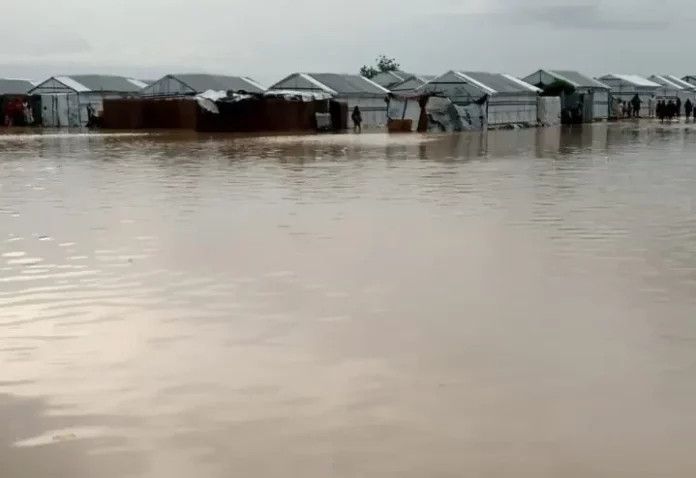By Hosea Parah, Abuja
The United Nations Office for the Coordination of Human Affairs has said that over 4.4 million people have been affected by the floods since July 2022.
This situation report was disclosed in the OCHA Flash Update, released on Thursday, December 14, 2022. The report also noted that at least 2.4 million people were displaced in the country due to flooding. It also stated that more than half of the displaced persons were residents of Bayelsa State.
“Floods have affected more than 4.4 million people across Nigeria since July, with over 2.4 million people displaced. More than half of these are in Bayelsa State.”
The report also accounted for the destruction of farmlands and lamented that this may lead to high food insecurity in the country.
It stated, “Some 676,000 hectares of farmland have been destroyed. The damage to the current harvest and limited access to income risks elevating emergency food insecurity in the coming months.”
The PUNCH had earlier reported in November that the same agency had noted that more than 3.2m were affected by the floods. While it pegged the number of displaced persons at the time to 1.4m, it stressed that 4.1m people were at risk of severe food insecurity in the country.
The agency advised that “Priority humanitarian needs remain shelter, access to clean water and sanitation, food, health care, and interventions to prevent or address disease outbreaks such as cholera.”
The situation report read, “As floodwaters recede people move back to their homes, partners are moving from an emergency response towards a recovery response. Many of the humanitarian needs remain the same, including shelter needs, interventions to prevent or address disease outbreaks such as cholera, providing access to food, clean water and sanitation, health care and other essentials.
“Government and humanitarian partners are also coordinating support for the restoration of basic services, including primary health care and water facilities, schools, and other critical infrastructure. Agricultural support – including replacing seeds and tools and other productive assets – is urgently needed to respond to crop losses during the harvest season and to help farmers resume their livelihoods.
“This is critical to address food security and, potentially, malnutrition. A third phase, including measures to improve early warning, preparedness and contingency planning, mitigation, and disaster risk reduction, as well as anticipatory action for next year, is being discussed with authorities to mitigate the worst effects and enhance people’s resilience to future disasters.”

